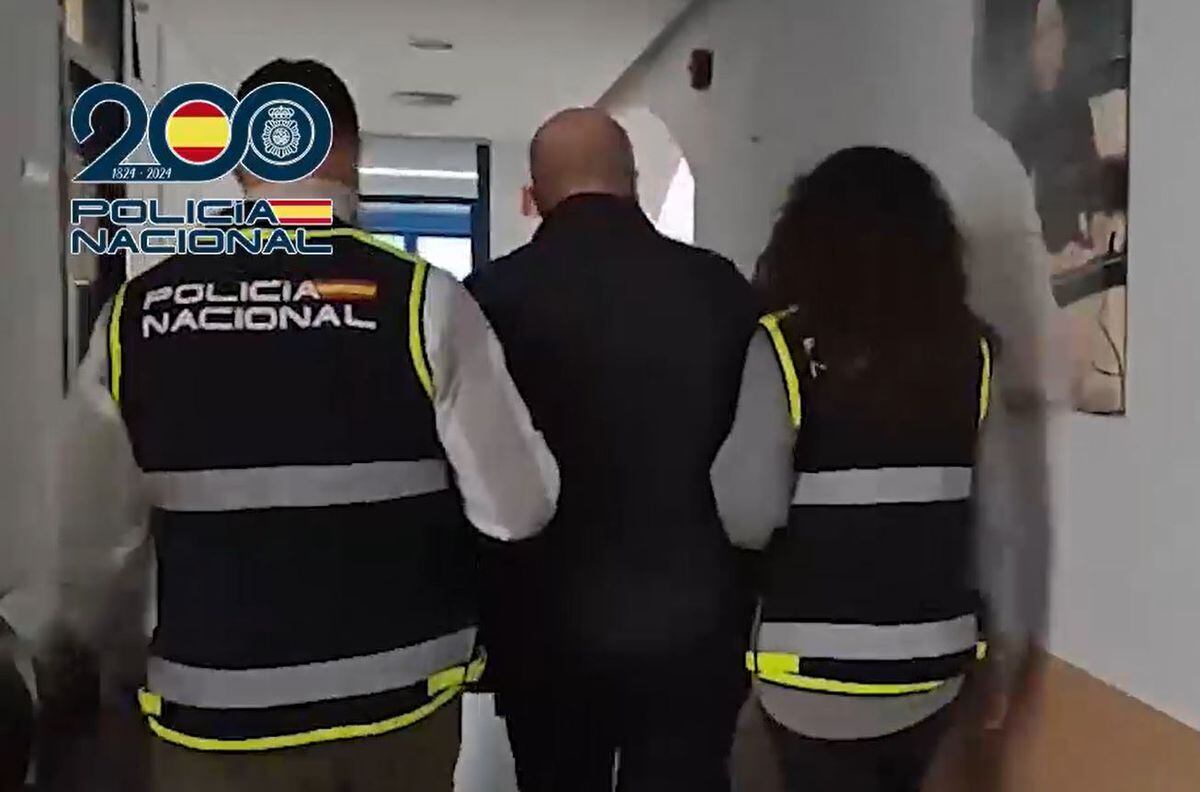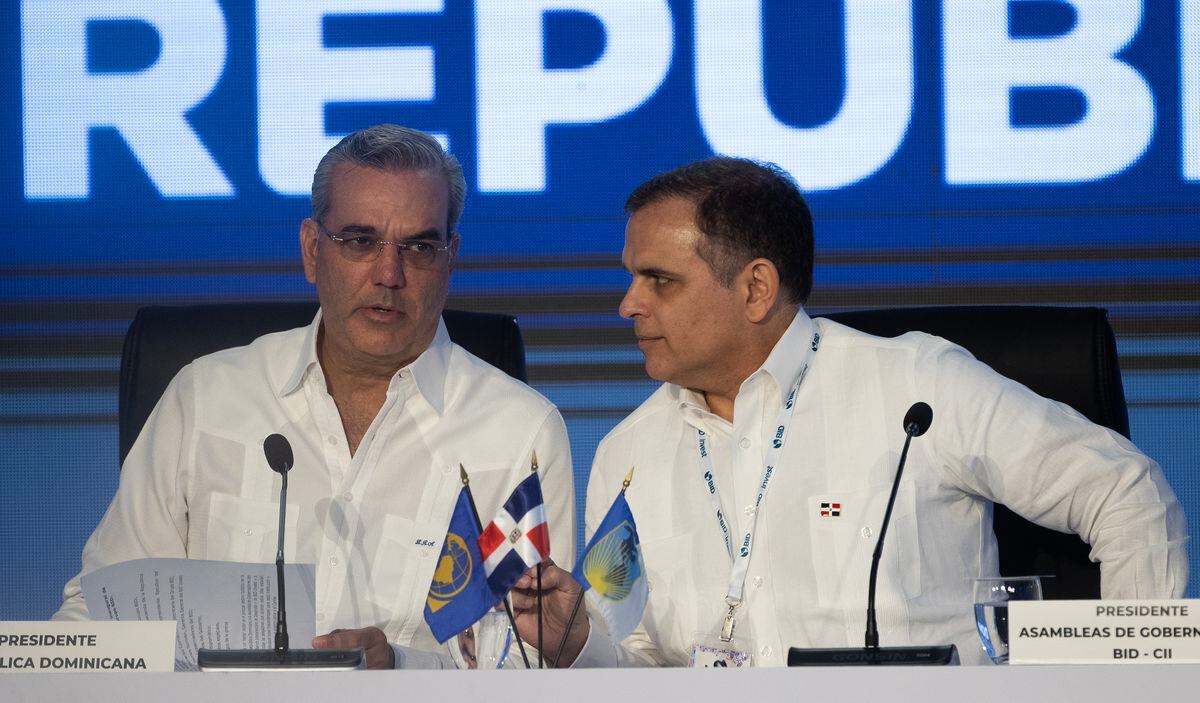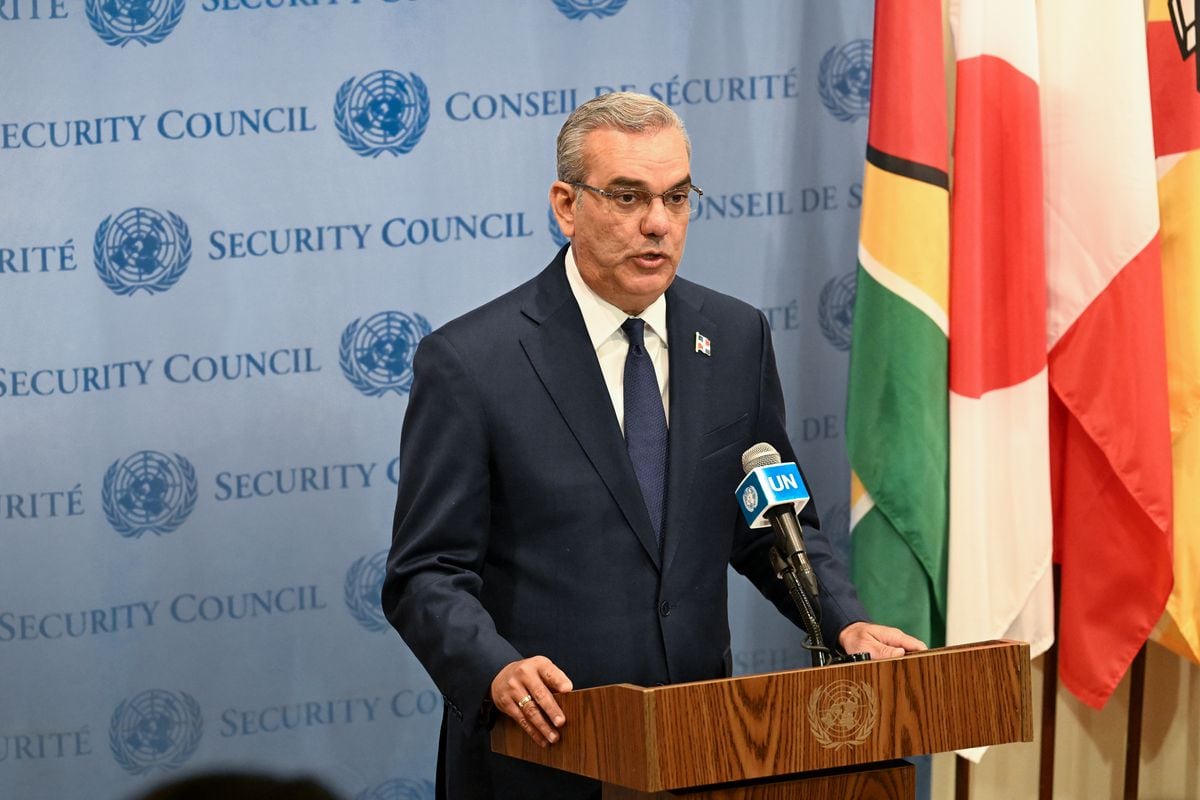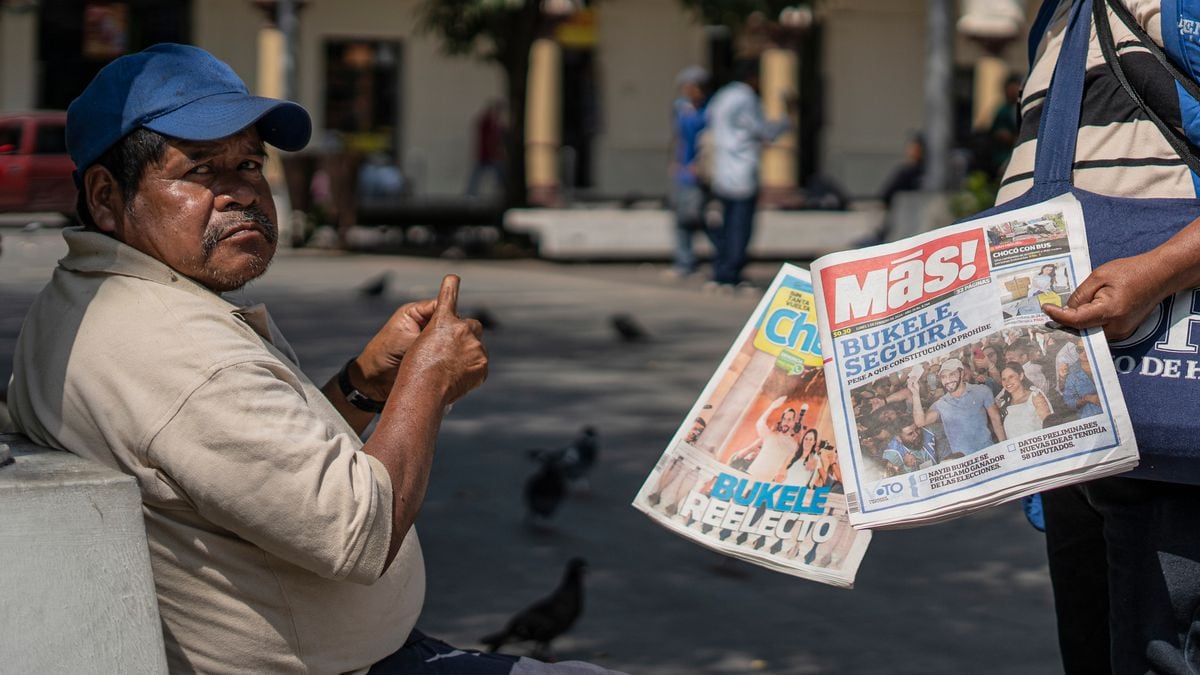- Click to share on Facebook (Opens in a new window)
- Click to share on Twitter (Opens in a new window)
- Click here to share on LinkedIn (Opens in a new window)
- Click to email a friend (Opens in a new window)
Editor's Note: Geovanny Vicente Romero is a lawyer and political scientist, with experience as a professor and advisor of public policy and governance. He is a political strategist and government communication consultant. He is currently completing a master's degree in Political Communication and Governance at George Washington University. He is the founder of the Center for Public Policy, Development and Leadership RD (CPDL-RD). The opinions expressed in this column are exclusive to the author.
(CNN Spanish) - In the past there have been those days in which the Dominican Liberation Party (PLD) stood out from the others for being the most organized, disciplined and functional group. Rarely, their internal affairs were grounds for social unrest or national ridicule as events that occurred in other parties. Last week the simultaneous primary elections of parties were held, the PLD being the one that ended with a dispute that can reach not only the constitutional bodies that decide, but also require some international mediation / observation.
Two factions disputed the candidacy: the leonelismo and the danilismo. Former President Leonel Fernández faced Gonzalo Castillo who represents the sector of President Danilo Medina. The outcome of these primaries is known to all, in a very close result, Gonzalo seems to have won the process (48.34% vs. 47.61).
Fernández's team alleges that an algorithm installed in the "source code" of the election software altered the result. Consequently, they deposited an instance before the plenary of the Central Electoral Board in which it is requested that the official declaration of results be stopped while doing a manual and digital audit at the presidential level, part of the process that in any case should be reviewed and / or canceled respecting the municipal and congress levels.
From my experience as an election observer of elections in the United States and internationally, I know that in the case of electronic voting one of its dangers is in the stage of data transmission. I was not present and I cannot certify this occurrence in the Dominican Republic, but I was surprised to see data from the Central Electoral Board before closing the voting, which could be interpreted as biased. It is for this reason that we saw candidates asking, as an emergency, their followers to remain in the voting ranks until they could vote.
This electoral political crisis in the Dominican Republic could not be understood in depth if the causes that brought us to this moment are not analyzed: presidential conflict.
The last time that President Danilo Medina and former President Leonel Fernández met in an election was in the 2007 primary, but this would not be the last time that PLD leaders would measure forces within their own organization, dragging the country with it .
We have to put things in context for a better understanding of the scenario that the PLD is experiencing and, in addition, the entire Dominican society, which is polarized in an internal partisan crisis that if it were not the party in power would not cause so much attention. It is the main political force not only for holding the Executive Power, but also for its hegemonic control in the Legislative Power. The constitutional reform of 2015 that allowed Danilo Medina to be re-elected in 2016 with the ban on doing so in 2020, would not be an obstacle for Medina to reincarnate his aspirations - or at least charge an old bill - in the body of a canned and manufactured candidate as we will see later.
Account adjustment of a debt that was never forgotten:
“The State defeated me” was the phrase with which President Danilo Medina, then a candidate, ended his presidential aspirations in May 2007. At that time, Fernández was the president on duty and Medina his challenger. At that time, Medina understood that to a large extent his defeat seemed to have been the excessive use of state resources in favor of re-election. Recall that in 2000 Danilo had already run for the presidency of the Republic without success when Hipólito Mejía - of the Dominican Revolutionary Party (PRD) - won him with a wide margin (49.87% -24.9%). In both Fernández's first government in 1996 and his second in 2004, Medina served as his Secretary of the Presidency what some countries consider Prime Minister.
In 2006, in the middle of Fernández's second government, Medina leaves his position in the administration to undertake his own political project again, this time against the charismatic Fernández, the only president that the PLD had had to date, who remained popular. Trying to land on his extensive defeat of 2000, Danilo starts with the motivating slogan: "Now Is".
The defeat of Danilo in 2000 would be repeated in 2007 when President Fernández defeated him in primaries overwhelmingly with 71% against 28%, numbers that probably will have lowered the morale of the losing team generating the famous phrase of the candidate. In 2010, Leonel with a significant presence in Congress was able to reform the Constitution to continue in power. He declined this possibility and in 2012, there is finally the "Now Is" that Danilo longed for in 2006, fulfilling his "prophecy." The rest is history!
Danilo has had one of the best governments in Dominican history. The level of poverty has been reduced, more education and better hospitals have been invested and the economic growth exhibited by the three governments of Leonel Fernández has continued. This success is not exclusive to Danilo, as I have said in the past: “No less certain is that this growth is not only due to the management of Danilo Medina, or of a person, because this development, with its ups and downs, it went through the hands of Joaquín Balaguer (1966-1978, 1986-1996), Antonio Guzmán (1978-1982), Leonel Fernández (1996-2000, 2004-2012) and this growth trend is maintained in the era of Danilo Medina ” .
Each term comes to an end and with it the electoral cycle appears. The 2010 Constitution prohibited Danilo Medina from being re-elected for the 2016-2020 period. The PLD with a legislative majority, again faces the scenario of resolving the recurring dilemma of Dominican politics: re-election. The Political Committee of the PLD met in the city of Juan Dolio and with an agreement that later became known as 'The Pact of Juan Dolio', a party shared the fate of the entire nation. In 2015, the Constitution is reformed, the padlock that prevented Medina's access to reelection is removed and is impeded by 2020, not so much for Fernández who had been out of power for 4 years and could aspire again in 2020 .
Coming to the end of his second term, Danilo faces the usual dilemma again. This time I think he pondered his legacy very well in history and chooses not to reform the Constitution. The worst ghost of his political past returns to the scene: Fernandez is the favorite pre-candidate. But how to collect an old debt with a Constitution that prevents direct confrontation? The PLD strategist has an ace up his sleeve.
The political incubator:
A political project is incubated as Sillicon Valey incubates its startups to make them successful in a short time. As Eduardo Moreles, director of Startupbootcamp Fintech Mexico points out, “ Startup is a great company in its early stage; unlike an SME, Startup is based on a business that will be scalable more quickly and easily, using digital technologies. ”
Big companies like Uber started as startup. In the political arena, just as the companies with the business plan, a campaign strategy is needed. For a successful “express” campaign, three things are required: a) good image; b) a message of impact and connection (narrative); and c) a lot of money.
These three elements were achieved in the Gonzalo Castillo campaign. Sixty-six days needed to become the PLD candidate. But how much credit for this success Gonzalo owes to his own political career? Only time will tell. His team knows that, from the last 25 years, 20 have been ruled by the PLD with only two faces in power (Danilo-Leonel), his message came with a look to the future and brought the slogan of #SangreNueva.
The third element is also met in the manufacture of this political product unknown to Dominicans before his experience as Minister of Public Works. His fortune has always been under scrutiny for how fast it grows, coming from a humble background and a business career mixed with public service. It would be another money, added to his own, that would catapult his candidacy.
The battle of David and Goliath: Two old adversaries measure forces in a clash of titans
From my point of view, the government tried - by far - to recreate a scenario similar to that that sector of the PLD considered unequal in 2007. The support Gonzalo received from the government was overwhelming: Cabinet of Ministers, Directors General, the Political Committee of the PLD , the Central Committee of the PLD, 126 mayors, 22 senators, 60 deputies, retired generals, etc. Even so, Gonzalo did not reach 50% in the primary.
Leonel Fernández's political future:
This story sheet has not yet been written. Everything will depend on the decisions that the electoral and constitutional bodies make about these newly held primaries. The reality is that, against all odds, with his #LaFuerzaDelPueblo campaign, Fernández has shown that he is the leader of the presiding organization. In an adverse scenario, he could lead the candidacy of a coalition of 16 minority parties that added to a considerable group of fighters who voted for him could break the "de facto" single party state and displace the Modern Revolutionary Party (PRM) as opposition force. This would force in 2020 the first second round that we would see since 1996. Leonel in another party completely redraws the electoral map.
A divided PLD is a strengthened PRM and the contest would be between the aforementioned coalition and the PRM that has never achieved power. At the end of the day, changes always attract and the PRM is facing its most important opportunity, but to be successful they must support clarifying the results of electronic devices, beyond any reasonable doubt because if not, your candidate, Luis Abinader, runs the risk of applying the same electronic potion in 2020. With clarifying things the country wins, Gonzalo removes the asterisk attached to his victory * and acquires legitimacy or Leonel demonstrates his victory and of course, Luis Abinader can Be calm knowing that you will compete in a transparent environment in 2020.
Leonel Fernandez





/cloudfront-eu-central-1.images.arcpublishing.com/prisa/RBDI3FWLIZDXBFZRE73ADUDT4M.jpg)
/cloudfront-eu-central-1.images.arcpublishing.com/prisa/2VA2ALVO6BDXLM22W73UWN5GDY.jpg)
/cloudfront-eu-central-1.images.arcpublishing.com/prisa/B3UGIK2AZZFOZB7VSLLA5GPJM4.jpg)
/cloudfront-eu-central-1.images.arcpublishing.com/prisa/MYQ5IMFXJZF4NGVYA5PCRZJJCM.JPG)
